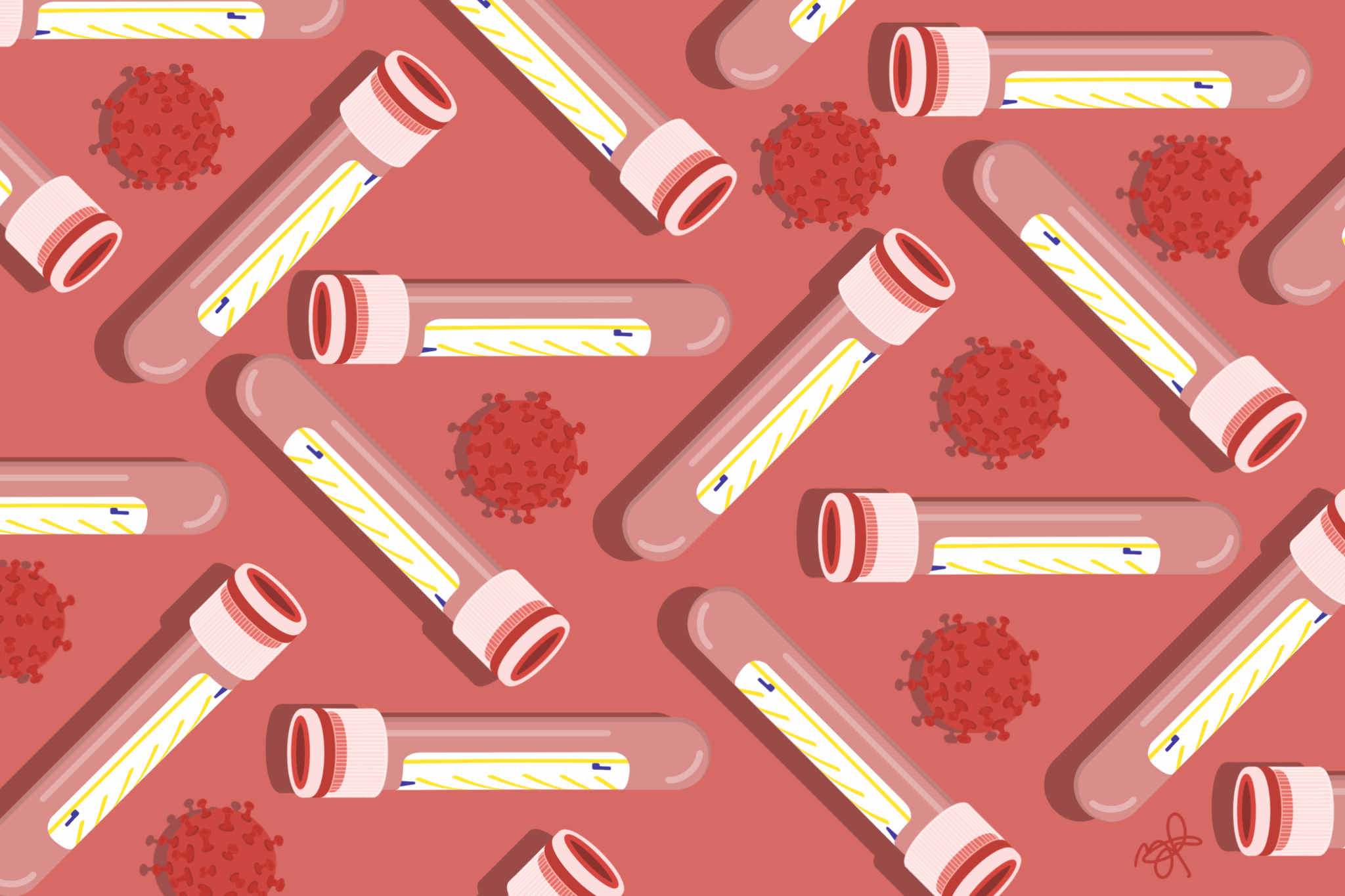Yale study examines effect of COVID-19 antibodies
Scientists at the Yale School of Medicine conducted a study to investigate the effect of T-cells and B-cells in adaptive immunity and what that could mean for future treatments against COVID-19.

Zoe Berg, Photo Editor
A new study from researchers at Yale School of Medicine’s Iwasaki Lab analyzed the protective capacity of antibodies generated by both the COVID-19 vaccine and natural infection.
The researchers examined the role of T-cells and B-cells in COVID-19 infections and differences in protection produced by vaccines and natural infection. When infected with COVID-19 for the first time, both T-cells and B-cells play a role in combating the infection.
However, the researchers found that when mice that had been vaccinated or had recovered from a natural infection became sick again later, they were still protected from infection — even if the scientists had selectively removed the T-cell part of their immune response. This indicates that antibodies alone, produced by B-cells, could protect against reinfection.The study was published in the journal Science Immunology on Sept. 2.
“We saw that antibodies [generated from both vaccine and natural infection] were also sufficient to protect against the … Beta variant. That’s the variant that — at least until this point — had been shown to be the most evasive of antibody responses,” said Benjamin Goldman-Israelow, lead author of the study and a postdoctoral researcher at the Iwasaki Lab. “Even more so than the Delta variant.”
The results show that, despite the Beta variant’s ability to evade adaptive immune responses, there is still a large enough antibody response to protect against significant disease. These results are similar to those seen in humans who get reinfected or who contract COVID-19 after being vaccinated, according to Goldman-Israelow. Their infections are often less severe and the likelihood of their hospitalization or death is low.
The Delta variant is not as immune evasive as the Beta variant, as the variant has not altered to evade adaptive immune responses as well, according to Goldman-Israelow. However, the Delta variant does seem to be able to transmit from individual to individual much faster than the Beta type. According to Goldman-Israelow, Delta has quickly become the predominant variant around the world.
“There has been some data that is starting to come out … that shows that you have a higher likelihood of getting infected from Delta the further out you are from your second dose of the vaccine, which would suggest there is some weaning of immunity,” Goldman-Israelow said.
It seems that vaccinated people are able to transmit the Delta variant because it has efficiently adapted to become highly transmissible, according to Goldman-Israelow. Providing booster shots might be able to further reduce transmission within the population. Such a move could potentially help protect those who are unable to get vaccinated or are immunocompromised.
One of the unique aspects of mRNA vaccines is that they are easily modifiable, according to Jon Klein, a graduate student at the Iwasaki Lab. Although mRNA vaccines are a relatively new technology, they have proven to be highly effective in prevention.
“A booster shot will likely be important in helping us [build] stronger immune protection against SARS-CoV2 and this will especially be required in the face of highly transmissible and potentially immune-evasive viral variants,” said Tianyang Mao, second author of the study and 5th year graduate student in the Iwasaki Lab. “One of the defining features of…immune memory, is [that] the quality … and the speed of the immune response is much stronger during reinfection. Now we actually remember what the pathogen looks like and we are much more equipped to actually fight against these pathogens.”
Although those who contract COVID-19 naturally generate antibodies that can protect against reinfection, the vaccine standardizes this protection, according to Klein.
Medical histories, genetics and other factors can all play a role in the quality of antibodies that people can produce through natural infection. Some immune systems do not really make great antibodies while others do, according to Klein.
“I think my personal opinion is that the vaccine generates really high quality antibodies almost universally,” Klein said. “In terms of booster shots, viruses naturally evolve over time. So in theory, booster shots may be required in the future. What we’ve seen now is that the vaccine produces pretty durable immunity.”
According to the Centers for Disease Control and Prevention, 53.4 percent of the total U.S. population has been fully vaccinated against the virus.







